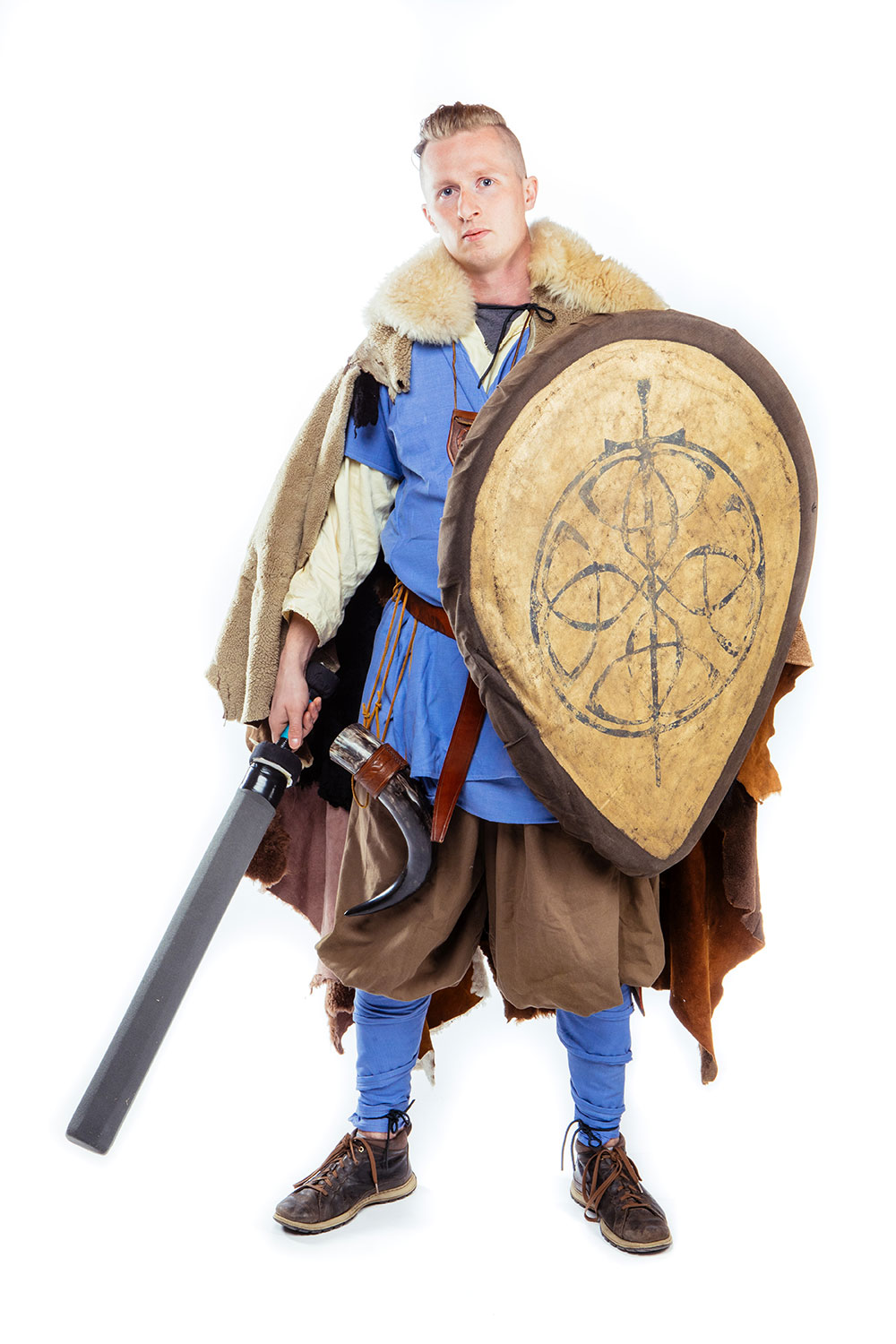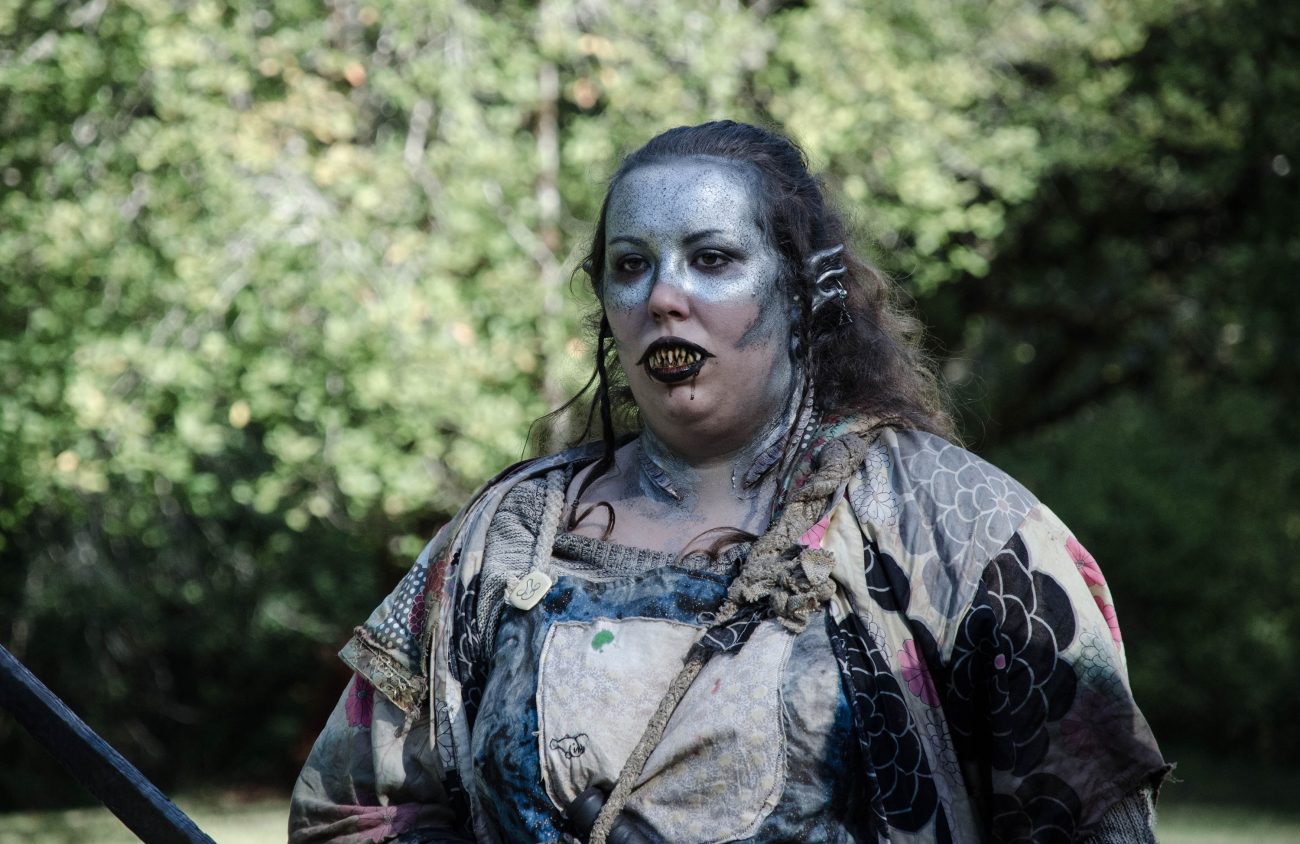For one weekend every month, people in Oregon venture off to the woods to fight zombies, mutated lizards and spiders. They’re transported from the present day to a post-apocalyptic dystopia.
It’s a weekend of drama, skill-building and even death. It’s also a weekend in a safe space where you’re respected and in control of your fun.
Dystopia Rising is a national network of Live Action Role Playing (LARP) games all set in the same post-apocalyptic universe. The Oregon game takes place every month at Camp Lutherwood, just outside Eugene.
Jim Flood owns and operates the Oregon franchise. To the untrained eye, a weekend with Dystopia Rising at Camp Lutherwood looks like a lot of people in costume running around with toy swords and Nerf guns, but in reality it’s a complex game forged around community.
So, how do you play?
You start with a character — deciding who you will be as a member of this society. A lot of what a character can and can’t do is dependent on your character’s skills. Your character can only act within the bounds of her skillset.
Guides, who are stationed with green headbands throughout the game, are resources to a player. Guides have your character sheet and help steer the game by letting you know, based on your character’s skills, whether you can or can’t do something. They also facilitate how certain characters’ personas can interact with others
“A lot of this is guided by consent rules,” Flood says. “We’re very into the concept that everyone here is here for a fun time and they are the holders of that fun time. And so they get to determine what type of experience they want to have.”
This means characters will occasionally put their hand on their head, a symbol of dropping out of character, and ask if the other character would like to, for example, proceed in an argument.
“Or get into a sword fight or a Nerf gun fight,” Flood says.
This way, everyone feels like their experience is valued.
“Everyone’s fun is prized as the main goal,” he adds.
In every game you play, your character progresses in skills, but this isn’t really the game for you if you’re out to win a trophy.
“If you’re having fun, you’re winning,” Flood says, adding that the goal is to be as inclusive as possible.
“One of the aspects in the game is that there’s no way to discriminate against anyone in the game,” he says.
In the game, there are different “strains,” or a variety of ways humanity has evolved, and they all look different. But Flood says there’s no conflict between strains.
Likewise, there are no assumptions based on gender. Characters often wear pronoun cards and respect how each person wants to be identified.
“We try to create sort of a post-label society so that everyone can go there no matter what their background is and find something that they enjoy,” says Flood.
He says this accepting environment is intentionally cultivated both inside and outside the game, since friendships often carry over after the weekend of gaming is over.
“I guess sort of what we’re aiming for is a community that games rather than a gaming community,” Flood says.
This community is vast. Flood says they have teenage players and players in their 50s. And everyone comes for a different reason.
“We have a lot of your traditional role players, people that enjoy the sort of fantasy elements and come out looking to immerse themselves in a game,” says Flood.
They also have folks who are really into the post-apocalyptic genre, as well as people who are interested in a survival experience.
The games often have puzzle room and scavenger hunt elements, and some people come for those aspects.
“I think if you went to any two or three players they probably have different things that they enjoyed,” Flood says.
The community aspect some discover in Dystopia Rising is also found in another game in Eugene. It’s not a LARP. It’s a medieval combat sport called Belegarth.
Enlarge

Photo by Todd Cooper
Tammas Hicks, president of the Belegarth Medieval Combat Society at the University of Oregon, says, “The basic rules are: If you get hit in the limb, you lose the limb. You put it behind your back. If you lose a leg, you take a knee. If you get hit in two limbs, you’re considered to be dead. If you get hit in the torso, you’re dead. No head, no neck, for obvious reasons.”
But don’t call it LARPing.
“A LARP would be defined by the role-play elements having a mechanical outcome [rather] than the game as a whole, and we don’t have that. We do have some people who do some role play, but it’s not essential to the sport,” Hicks says.
Like Dystopia Rising, there’s not a typical Belegarth player — it’s for everyone: Theater majors, computer science majors and former college athletes join Belegarth for different reasons.
It’s a game that transcends labels.
One player, Casey Burke, says, “I was a former athlete, and once I was done playing college football and didn’t really have an outlet, I was kinda bummed out.”
He says a friend suggested he check out Belegarth. Initially he told his friend, “That sounds pretty nerdy, dude.” But he went, and he had a blast. He was surprised to find that half the guys there were also athletes.
“The athletic and competition aspect is the biggest for me,” Burke says.
He adds: “There’s definitely community in the game. In a lot of ways I think it attracts people who feel like they didn’t have anywhere else they fit in.”
Whether you’re wearing chainmail and wielding a javelin in Belegarth or shooting a mutant spider with a Nerf gun at a Dystopia Rising event, there’s something in it for everyone.
